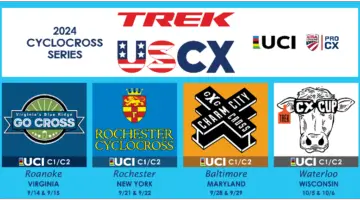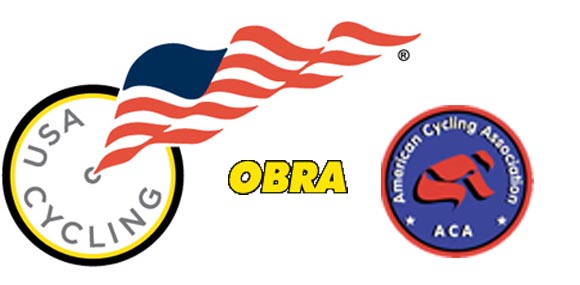Yesterday the Cyclocross Magazine website featured a report, “USA Cycling Pressures OBRA, Independent Organizations and Events,” that generated quite a bit of attention and feedback. Rumors have been surfacing about USAC no longer permitting dual-sanctioned events (where another sanctioning body runs some of the categories, as in the USGP in Bend, Oregon) as well as preventing officials from working for an independent sanctioning body in addition to USA Cycling. Yesterday, Kenji Sugahara (the executive director of OBRA) and Brad Ross (who directs several high profile events under both USA Cycling and OBRA) both weighed in. USA Cycling, via its communications director Andrea Smith, told CXM, “There simply haven’t been any discussions between USA Cycling and OBRA on this and it is the first we’ve heard of it.” Today Sean Petty, COO of USA Cycling, chimed in with his perspective and input. Go back and read the interviews and perspectives from Sugahara and Ross on USAC and cyclocross for more of the background, and as always, we welcome your comments below.
Cyclocross Magazine: Do you want to start off by responding to the comments in our previous article by Brad Ross and Kenji Sugahara?
Sean Petty, COO of USA Cycling: [USA Cycling] is a national organization that provides structure for five disciplines. USA Cycling has an obligation to the US Olympic Committee and the UCI, which is the international cycling federation, and our policies are in concert with those organizations.
In terms of officials, and about them having to choose [between working for USAC or an independent sanctioning body, like OBRA]: That’s never been discussed as a policy and is completely untrue. It’s a completely false accusation. Steve Johnson has never spoken to Brad Ross on either of these topics [dual sanctioning or race official exclusivity].
As far as enforcement of UCI rules: At the beginning of 2009, the Tour of the Gila got the UCI’s attention when Lance and some of his Radio Shack teammates lined up [for the race]. After that, the UCI was more adamant about enforcing those particular rules [specifically UCI Rule 1.2.019, governing which pro riders could participate in what level of events]. In 2011, [the UCI] asked for even stricter enforcement. This had nothing to do with OBRA or ACA. [UCI trade team] riders cannot ride an unsanctioned event. In spite of the phrasing of the rule with “UCI exemptions” – there’s no variance. The “exemptions” are meant for gran-fondo-type events, not competitions.
[Note: The UCI rule reads “No license holder may participate in an event that has not been included on a national, continental or world calendar or that has not been recognized by a national federation, a continental confederation or the UCI. A national federation may grant special exceptions for races or particular events run in its own country.” The rule can be found in PDF form on the UCI website, here. This applies to racers who compete in OBRA, ACA and many NorCal events including the SSCXWC.]
CXM: So what about the future of events with dual sanctioning, like the USGP races in Bend that have OBRA sanctioning for the lower categories? Will there be restrictions placed on this in the future?
Petty: The dual sanctioning discussion has come up as a result of input from our insurance agencies. Contrary to what Brad Ross thinks he knows, that’s a fact. We do discuss annually with our insurance agency how to minimize liability. If a non-USAC sanctioned event happens in the first part of the day, and there’s a USAC event in the afternoon, there’s bound to be overlap on and off the course between racers, officials, etc. It’s not clear where [the jurisdiction and liability] of one ends and the other begins. We renew and revise our policy annually; we haven’t made a final evaluation yet for next year, but we already do expect our insurance premium to increase.
There has been no discussion with Brad or Kenji on these points, and the comments are nothing short of inflammatory; they serve little purpose to the sport.
CXM: What about the ACA reintegration?
Petty: It was the ACA clubs and its members who voted to return to USAC. To say that USA Cycling had a desire or a goal to put them out of business is patently false. The same people who ran the ACA before are still there, they’re simply now under the USAC umbrella. The ACA does a lot of great programs, just like we do with the 34 other Local Associations throughout the country. We want to foster and support the growth of grassroots around the US.
As far as whether USA Cycling is better at supporting Elites vs. grassroots, we have 600,000 racer days per year, we sanction more than 3,000 events, and there are more than 2,700 USAC clubs which are in every way grassroots and at the local level, week in and week out. We also offer a rebate every year to Local Associations. Between 2004 and 2010 that amounted to $2.4 million, and it will be $3 million by 2011.
Eighty percent of our members are over the age of 30, and there are only 60 UCI events out of 3,000.
The ACA and other Local Associations develop the local calendars, manage competitions like the “Best All-Around Rider,” manage the series and determine how money is used and how best to support racing in that area. That’s what OBRA does — determine the needs of the community. The idea that we’re coming after OBRA is silly; they do a great job. Right now they choose not to be associated with the national governing body, but we have no desire to take them over.
CXM: Can you expand upon the relationship between USAC and the US Olympic Committee? Since cyclocross is not an Olympic sport, does it get less support than road, mountain biking, BMX … the sports that are in the Olympics?
Petty: Looking at cyclocross, in 2005 we had 237 events. This year so far there have been 508 events. There’s been growth throughout the country and in new markets, and the ridership has increased. Cyclocross gets the same level of support in terms of licensing, officiating, permitting. Olympic sports receive more money for athlete development because we are also the national Olympic governing body. We spend quite a bit of time and effort supporting the national [cyclocross] team – but it’s not as much as in the other disciplines.
We also run the Cyclocross Promoters Summit [See our attendee reports of the 2011 event], and Brad Ross has been a part of that in the past. The purpose of the summit is to grow and manage the calendar, and there are many more UCI events in the US than in any other country in the world.
CXM: Two areas are tough for riders who predominantly race non-USAC events: the lack of category reciprocity and the new results ranking system for cyclocross, which determines start order at Nationals.
Petty: Because of the growth of cyclocross, the National Championships have become much bigger and better attended. We had to get away from the [seeding] system by order of registration – had more to do with random luck than anything. Last year the time trial [to determine the start orders] added tremendous logistics and costs, and caused a lot more issues. Using rankings from 500 events is a much better structured system for assessing the strength of the racers from around the country. That system has nothing to do with OBRA or ACA. But if [their riders] are not part of the national federation, but then they want to benefit, then we’re at odds. They don’t want to support and fund the national body, but they want to get the benefits.
Like Kenji said, we get along great with him. But Kenji’s comments that USAC is focused on Elites are silly; he knows better. We’ve grown by 6% per year for the last several years. We’re creating a better experience for bike racers, period, and we’re developing new and better ways to serve our members. The vast majority of our staff time and resources are directed to supporting grassroots and all of these events. We’re very interested in growing our pool bigger and supporting our members and race directors, and having a robust insurance product for race directors and riders.
As far as reciprocity, that’s evaluated every year and agreements expire 12/31. There have been no discussions about that yet this year, and Kenji hasn’t asked us about it at this point for 2012. For 2012, all of the ACA racers who join USA Cycling will have their categories honored, including the Cat 1s.
We’re all in this together, and we all want to grow the sport of bike racing. What goes on at the state and local level is important, and there are things that don’t link up when a group isn’t part of the national organization.
In light of and against the current economy, with over 500 events already this season, the discipline of cyclocross couldn’t be more healthy. That’s a great thing.
Chime in with your thoughts and responses below. You can be sure that USA Cycling will see them, and hopefully will respond.



























